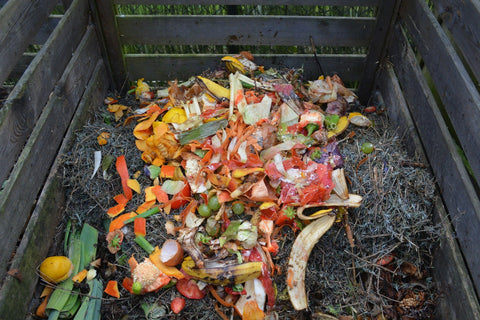
Think about how much single-use plastic you discard in your daily life. Now multiply that by 365 days a year and 7.6 billion people also throw out a significant amount of plastic everyday too. In 2016, the world generated 242 million tonnes of plastic waste. If you think that’s a lot, we’ve seen an increase of 41% more plastic waste generated globally by 2018, with a whopping 340 million tonnes of plastic waste being produced. Of that 340 million tonnes, 46% of the plastic waste was attributed to packaging.

Product engineers and environmental scientists are working diligently to find a solution for this, and fast. One chemist at Cambridge University was researching how functional protein interactions allow us to stay healthy and how irregular interactions are implicated in Alzheimer's disease, however they found the answer to sustainable packaging instead.
Now what do you know about spider silk? Probably not much. You should know that natural spider silk is favored by researchers mainly for its outstanding mechanical strength, temperature adaptability, and its composition, while spider silk fiber has high specific strength, excellent elasticity, and super toughness, which is incomparable to those of other natural fibers and synthetic fibers. In fact, spider silk is five times stronger than steel, and half as strong as Kevlar; it's considered one of the strongest naturally occurring materials on Earth.

Scientists have found a way to isolate the polypeptide chains in soy proteins and, under the right conditions, force the plant proteins to self-assemble in a structure identical to spider silk.
The implications of this are huge! The material will be developed commercially to replace microplastics and single-use plastics by a University of Cambridge affiliated company called Xampla, which has plans to introduce a range of capsules and sachets to replace the plastics used in dishwasher tablets and laundry detergent capsules.
This new material works in a way very similar to the plastics you and I are used to seeing. The resulting plastic-like film can be waterproofed as well as altered in colour. Even better, this bioplastic is 100% compostable, meaning consumers can break down these plastics in their compost bins at home rather than sending it to a specialized recycling facility. In addition, the Cambridge-developed material requires no chemical modifications to its natural building blocks, so that it can safely degrade in most natural environments.

It’s incredibly inspiring to see how an almost inadvertent scientific discovery is changing the face of single-use plastics as we know it. We can only dream that the future is full of these eco-friendly innovations that are essentially saving our planet. As consumers, we must grow increasingly conscious of our carbon footprint and the waste we produce on a daily basis if we don’t want to see this earth in flames.
